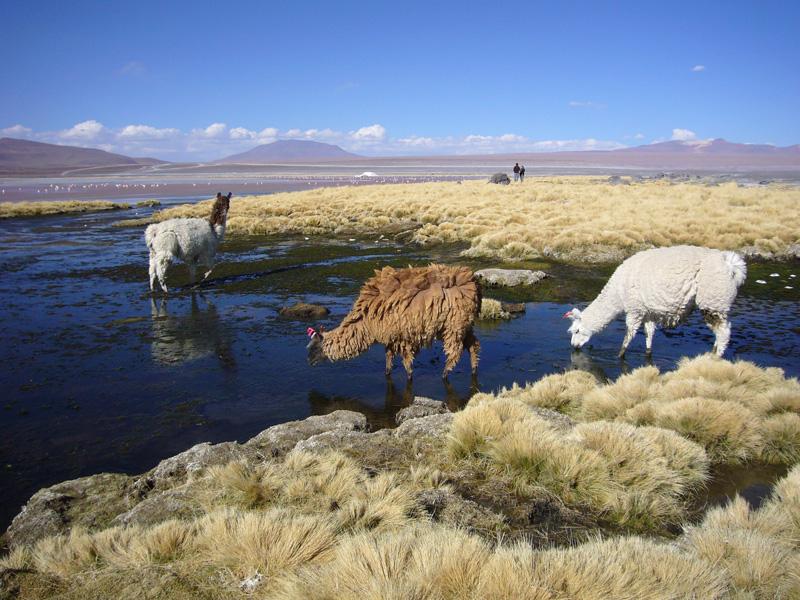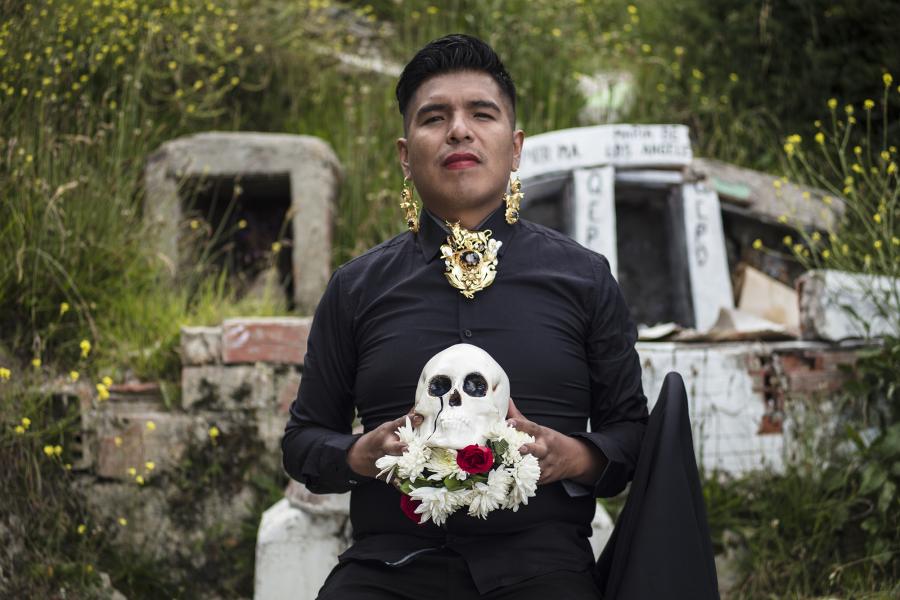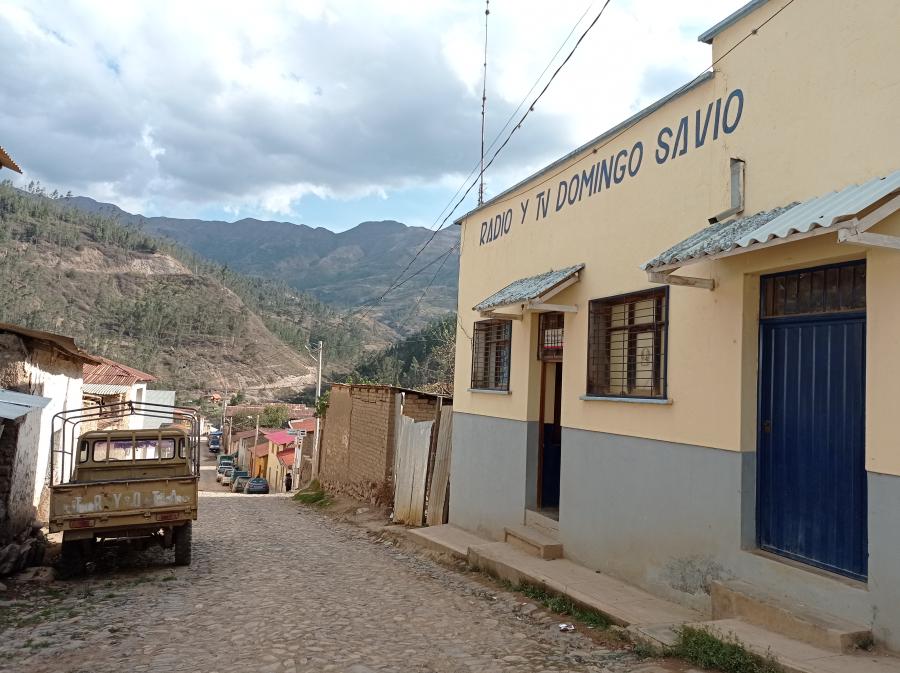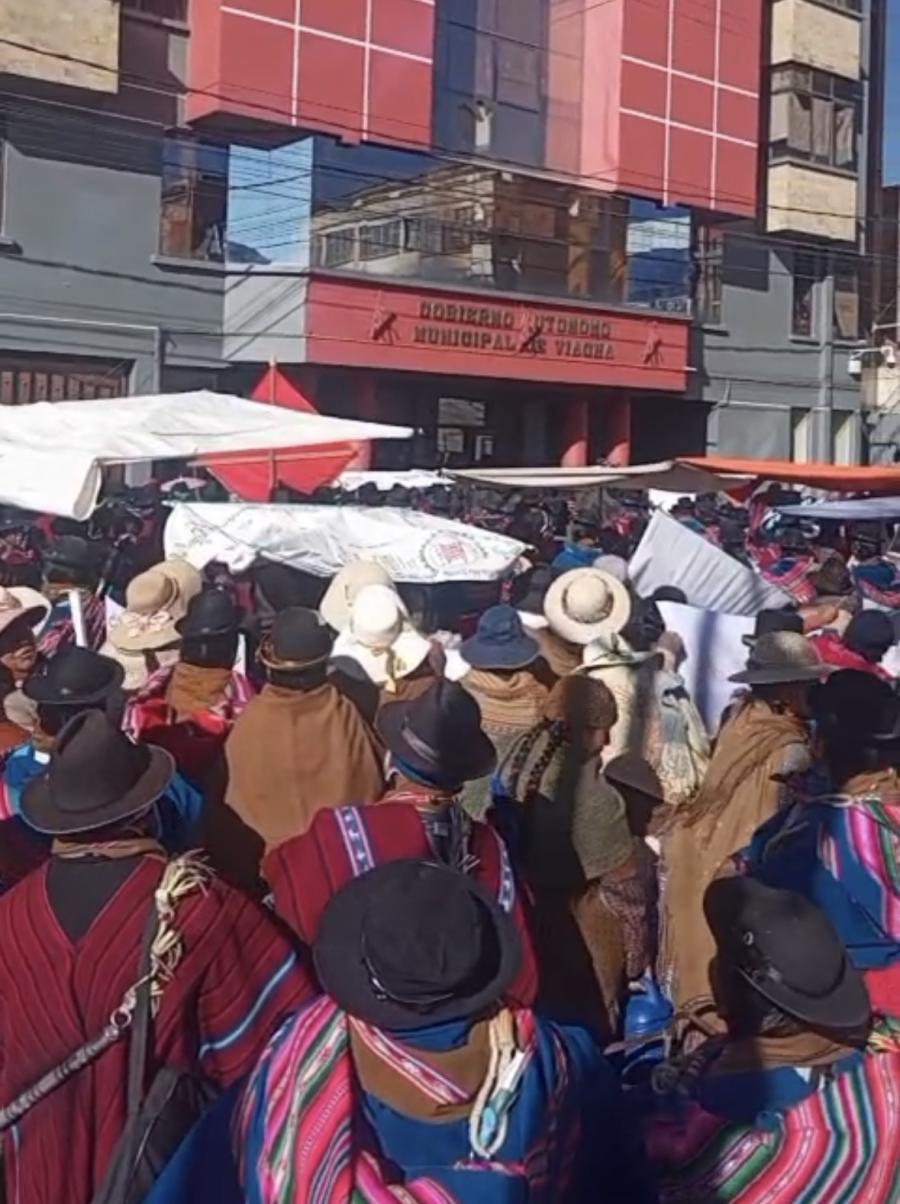
In October 2023, Cultural Survival and Qhana Pukara Kurmi, an association of Indigenous communities of the department of Oruro, Bolivia, submitted an alternative report to the Committee on the Elimination of Racial Discrimination. The report spotlights the rights violations suffered by the Quechua communities of the Ayllu Acre Antequera for the Committee’s consideration during its 111th session, which took place from November 20 to December 8, 2023.
The Committee on the Elimination of Racial Discrimination is a United Nations body of independent experts that monitors the implementation of the Convention on the Elimination of All Forms of Racial Discrimination by UN member states who are party to the convention.
On December 8, 2023, the Committee published the concluding observations of Bolivia’s review session, a document that includes specific recommendations on issues for improvement and follow-up by the government. The document contained 29 recommendations related to Indigenous Peoples out of a total of almost 80 recommendations, indicating that the experts consider Indigenous rights violations to be a major ongoing problem. Some of the recommendations were:
- Establish a national law and protocols to implement Free, Prior and Informed Consent (FPIC) in consultation with Indigenous Peoples.
- Guarantee consultations to obtain FPIC, particularly in mining prospecting and exploration activities and in the granting of licenses for infrastructure, mining, gas, or oil exploitation projects.
- Conduct independent social, environmental, and human rights impact studies.
- Ensure that Indigenous Peoples receive compensation for harm or loss and obtain benefits from such activities.
In the section on FPIC, the Committee made specific mention of the situation of the Quechua communities of the Ayllu Acre Antequera, noting with “concern that the current regulatory framework on prior consultation is sectoral, fragmented, and does not guarantee international and regional standards on the right to consultation and Free, Prior and Informed Consent of the Indigenous and Native Campesino Nations and Peoples and the Afro-Bolivian People.” The Committee also expressed concern “about allegations regarding the granting of licenses for mining and hydrocarbon exploitation and the development of infrastructure projects with the potential for soil contamination and impact on the traditional livelihoods of these peoples, without systematically holding consultations to obtain the Free, Prior and Informed consent of the affected populations,” and “at the allegations of the violation of the constitutional right to prior consultation in the Ayllu Acre Antequera."
Large-scale mining operations in the arid altiplano (high plateau) region of western Bolivia are having devastating effects on the Indigenous Peoples living in the area. The Ayllu Acre Antequera is made up of eight Quechua communities (Chapana, Antequera, Charcajara, Huacuyo, Queaqueani Grande, Queaqueani Chico, Totoral Grande, and Totoral Chico) with a total population of 3,264. The Ayllu communities are located in the eastern part of Poopó province in the Bolivian department of Oruro, which historically has been an important mining region, especially for silver. They currently coexist with the Bolívar mine, which extracts silver, zinc, and lead. The mine is jointly owned by Canadian company Santa Cruz Silver Mining Ltd. (through subsidiaries Illapa and Sinchi Wayra) and the government-run Corporación Minera de Bolivia.
Unmitigated water depletion and environmental pollution caused by the mining activity in Oruro are harming the Indigenous Peoples living in the area. In an already arid region, the mine uses 800,000 liters of water per day and discharges 80 liters of wastewater per second into the Antequera River, which is far more water than is allowed under its lease. In addition, much of the remaining water has been contaminated by the mine and is not potable or suitable for human, animal, or crop consumption. Technical reports confirm the presence of arsenic, lead, cadmium, zinc, and cyanide sulfates exceeding the maximum levels allowed in Bolivia, which can cause serious health problems for the people living in the polluted territories. This excessive use of groundwater for mining operations has meant that the communities have lacked sufficient water resources, to the point that many families have had to get rid of their livestock. Livestock are of vital importance for the livelihoods of the families, and their removal is destructive to their food and economic sovereignty.
As a result of this water scarcity and pollution, many Indigenous communities that have traditionally lived in the area have been forced to abandon their lands. The destruction of the territories has progressed so far that, in an attempt to escape the pollution and have access to clean water to produce what they need to survive, communities have been forced to confine themselves to drastically smaller pieces of land. As the territories become smaller and smaller, the inhabitants cannot sustain themselves with the remaining natural resources. It is a confinement aimed at the forced expulsion and extinguishing of the Indigenous communities.
People who do stay and try to protect their land and water rights attest to the fact that they often feel threatened and watched by the company. If they complain, they are threatened with criminal prosecution or the firing of family members who work at the mine. Over the years they have faced attacks or threats for defending their rights and territory. Several of their leaders have suffered physical attacks and face criminal prosecution, which has generated a campaign of terror directed at the Indigenous communities that refuse to leave their lands. Since 2018 there have been at least four accusations against authorities or community members of the Indigenous communities that make up the Ayllu for defending their territory.
On May 15, 2022, inhabitants of the Ayllu Acre Antequera began a peaceful vigil as a means to pressure the mining concern. After nearly a month, a meeting was called with the Oruro department authorities, who promised to carry out environmental inspections. The inspections never happened. Instead, on June 29, the people at the vigil were surprised by a group of approximately 1,200 workers and members of the mining unions who violently interrupted the peaceful gathering with dynamite explosions, physically assaulting women and threatening to sexually assault and kill them. They proceeded to steal valuable personal belongings and set fire to two sites where vigils were being held, burning the sacred symbols of the Indigenous authorities. The women survivors have not yet returned to their territory with their families because of the risks to their safety. Several people from the community filed complaints that have not progressed and for which they fear reprisals.
As a result of the water and soil pollution, all dimensions of traditional Indigenous life, social structure, cultural identity, and traditional economy have been destroyed. Forced migration resulting from the devastation of the territory separates youth from the Elders of the community, thus preventing participation in shared cultural activities and the inheritance of cultural knowledge. A decrease in the birth rate within the community further threatens the transmission of culture. All of these impacts present a risk of permanent cultural extinction.
In addition to these rights violations, the right to give or withhold Free, Prior and Informed Consent, which Indigenous Peoples are guaranteed by international standards for any activity carried out in their territory or any measure that affects them, has also been flagrantly violated. The contract for the Bolivar mining project was signed without taking this process into account and without establishing any communication with the eight communities affected by the mine.
Cultural Survival, together with its community partners, will closely monitor compliance with all relevant recommendations made by the Committee on the Elimination of Racial Discrimination to ensure that the State of Bolivia respects the rights of Indigenous Peoples, including their right to give or withhold consent to use their lands, to not to be displaced because of serious pollution of their lands, and to not be threatened for defending their territories.
Access the full report and all recommendations here.
Photo by anlopelope.



